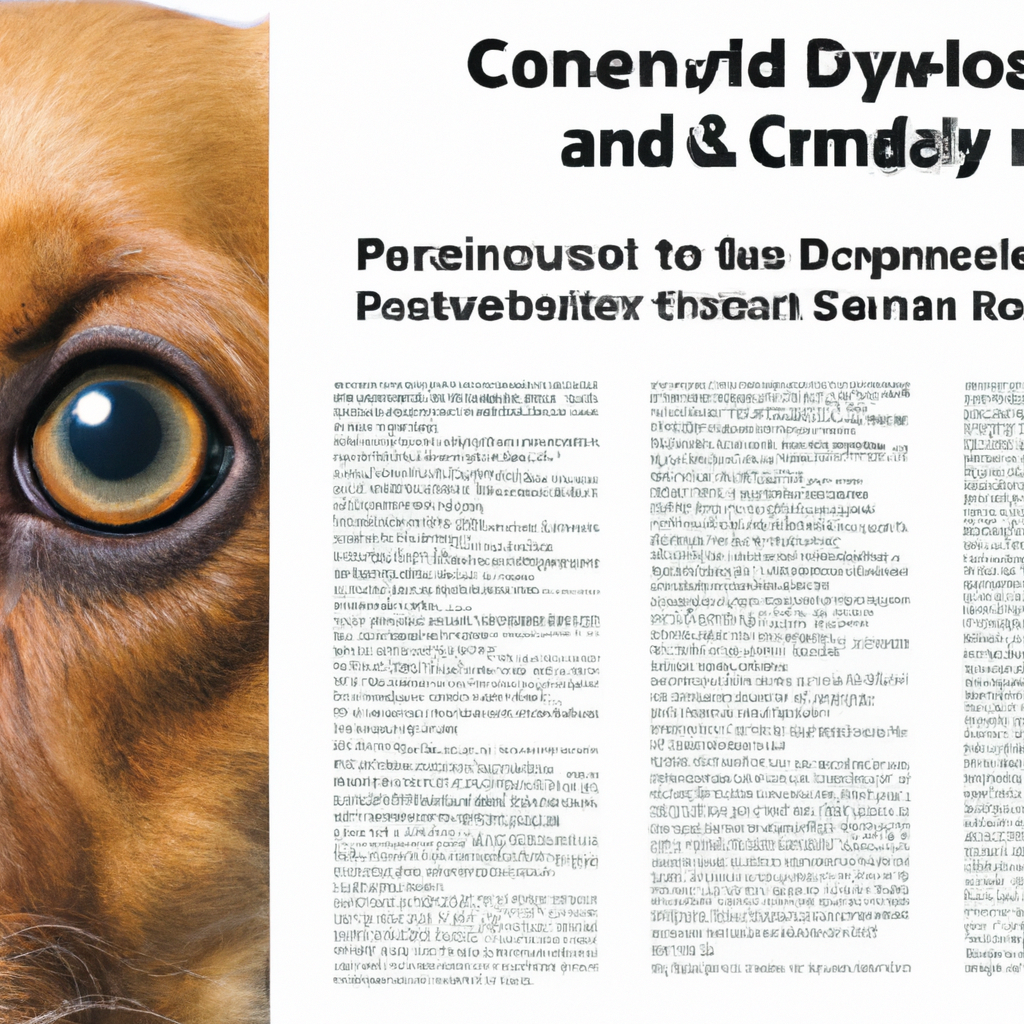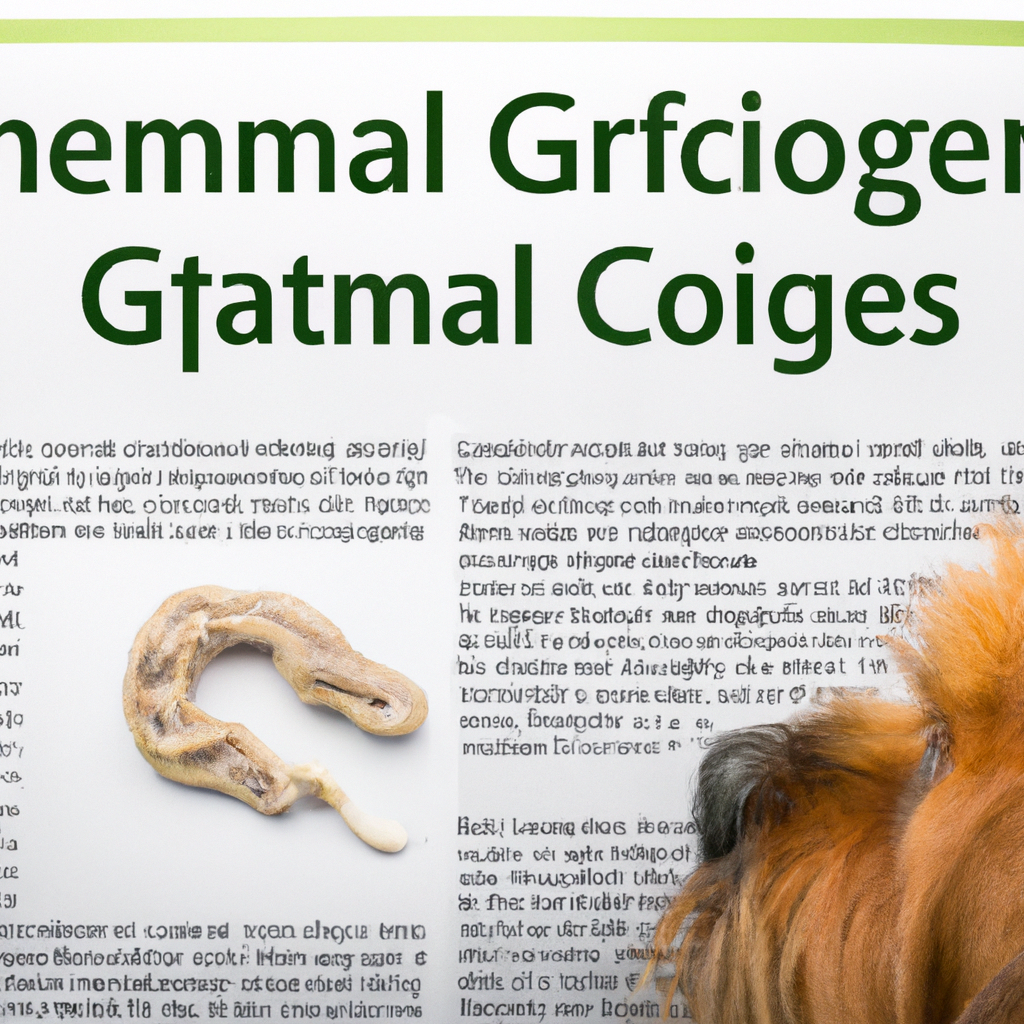Understanding Your Dog’s Nutritional Needs for Optimal Health
Understanding Your Dog’s Nutritional Needs for Optimal Health The Importance of Proper Nutrition for Dogs Just like humans, dogs

Understanding Your Dog’s Nutritional Needs for Optimal Health
The Importance of Proper Nutrition for Dogs
Just like humans, dogs require a well-balanced diet to maintain optimal health. Proper nutrition plays a crucial role in their growth, development, and overall well-being. A balanced diet ensures dogs receive essential nutrients, vitamins, and minerals necessary for their body to function properly.
Essential Nutrients for Dogs
Dogs need a mix of macronutrients and micronutrients to thrive. Here are the key nutrients your furry friend needs:
-
- Proteins: Dogs are primarily carnivorous animals, so high-quality animal-based proteins should form a significant part of their diet. It helps build and repair tissues, supports a healthy immune system, and provides energy.
-
- Carbohydrates: While dogs do not require carbohydrates in large amounts, they can benefit from whole grains and vegetables in their diet, as they offer essential fiber and energy.
-
- Fats: Healthy fats are crucial for dogs as they provide energy, promote healthy skin and coat, and help with nutrient absorption. Ensure they receive a good source of omega-3 and omega-6 fatty acids.
-
- Vitamins and Minerals: Dogs need a range of vitamins and minerals, such as vitamin A, B complex, C, D, E, calcium, iron, and zinc to support various bodily functions, including proper bone development and a robust immune system.
Factors Affecting Nutritional Needs
Understanding your dog’s nutritional needs goes beyond knowing the essential nutrients. Several factors can influence their dietary requirements:
-
- Age: Puppies, adult dogs, and senior dogs have different nutritional needs. Puppies require more protein and calories for growth, while senior dogs may need a diet promoting joint health.
-
- Breed: Different breeds have varying metabolic rates and predispositions to certain health conditions. Consider your dog’s breed to tailor their diet accordingly.
-
- Activity Level: Highly active dogs, such as working or sporting breeds, require more calories to support their energy expenditure, while less active dogs need fewer calories to prevent weight gain.
Consulting a Veterinarian
It’s essential to consult a veterinarian to determine the specific nutritional needs of your dog. They can help you develop a customized diet plan based on your dog’s age, breed, weight, and overall health condition. Regular check-ups with your vet ensure any dietary adjustments can be made to support your dog’s changing needs over time.
“Proper nutrition is the foundation of a healthy and happy dog. It’s key to provide a balanced diet to ensure their overall well-being.”
– Dr. Sarah Thompson, DVM
Maintaining a Healthy Diet
Feeding your dog a nutritious diet is a responsibility that contributes to their lifelong well-being. Consider the following tips:
-
- Choose high-quality commercial dog food or prepare homemade meals (under the guidance of a veterinary nutritionist) to ensure your dog’s diet meets their nutritional requirements.
-
- Avoid feeding excessive treats or table scraps, as they can lead to nutritional imbalances and obesity.
-
- Establish a regular feeding schedule, offering the appropriate portion sizes to maintain a healthy weight.
-
- Provide fresh and clean water at all times to prevent dehydration.
-
- Monitor your dog’s body condition, weight, and overall health to assess the effectiveness of their current diet.
Conclusion
Understanding your dog’s nutritional needs is crucial for their overall health and well-being. A balanced diet containing the essential nutrients, proteins, carbohydrates, fats, vitamins, and minerals, tailored to their age, breed, and activity level ensures optimal health and longevity. Consulting with a veterinarian and providing a healthy diet will help your furry friend thrive and bring joy to your life for years to come!






